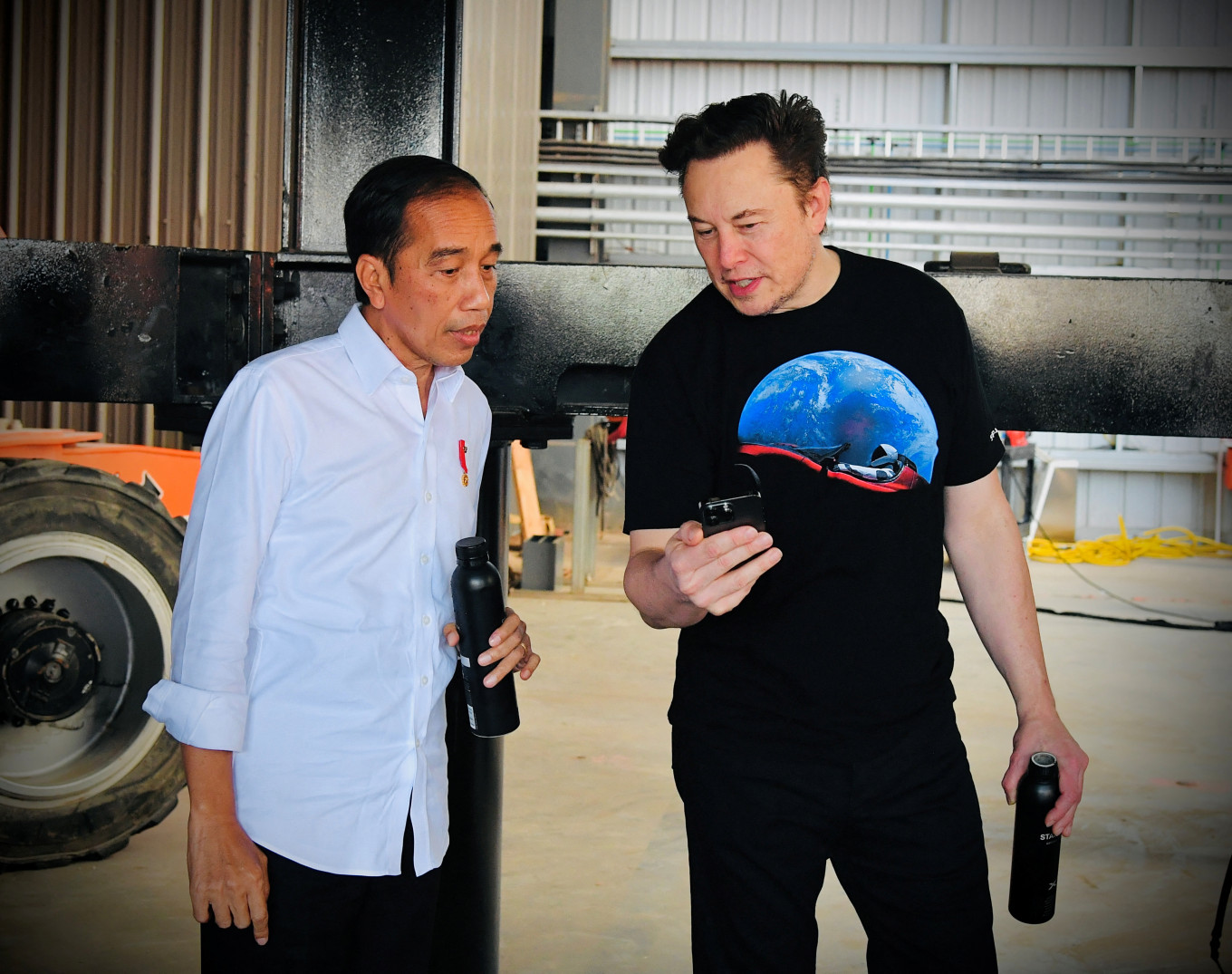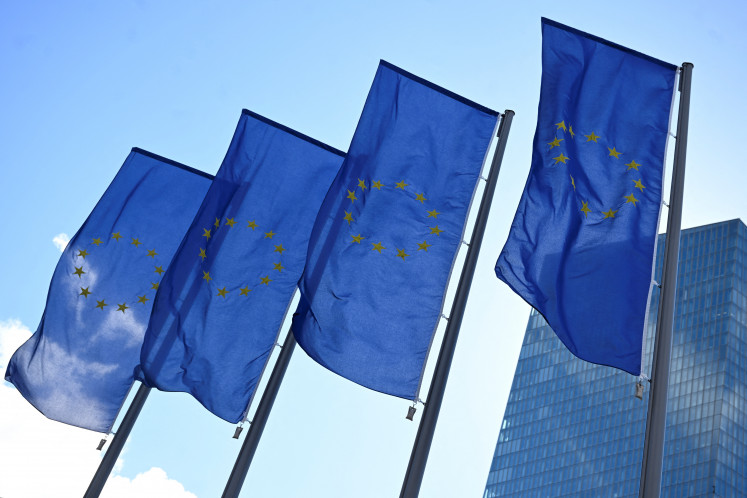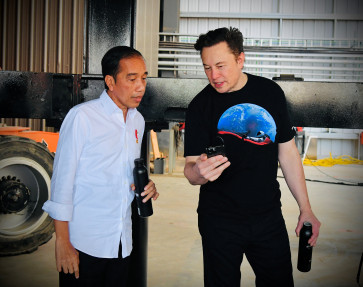Learning from Tesla’s removal from S&P 500 ESG Index
Companies must seek to reduce their GHG footprint and set GHG-reduction goals to align with the objectives outlined in the Paris Agreement.
Change text size
Gift Premium Articles
to Anyone
 President Joko "Jokowi" Widodo talks with founder and CEO of Tesla Motors Elon Musk during their meeting at the SpaceX launch site in Boca Chica, Texas, the US, on May 14. (Reuters/Courtesy of Laily Rachev/Indonesia's Presidential Palace)
President Joko "Jokowi" Widodo talks with founder and CEO of Tesla Motors Elon Musk during their meeting at the SpaceX launch site in Boca Chica, Texas, the US, on May 14. (Reuters/Courtesy of Laily Rachev/Indonesia's Presidential Palace)
D
espite its rocky history, Tesla is now a leading electric vehicle (EV) manufacturer, estimated to be worth US$1 trillion. The company’s success is, in part, attributed to their product’s high-tech features and increased consumer and government demands that automobile manufacturers do their part to fight against climate change.
And because of the company’s achievements and innovative spirit, Tesla is in an excellent position to help the European Union and countries like the United States meet their goals of putting more electric-powered vehicles on the road by 2030.
Tesla’s lucrative business portfolio has also attracted the Indonesian government. Last month, President Joko “Jokowi” Widodo met Tesla’s CEO Elon Musk at his SpaceX base in Boca Chica, Texas, to discuss potential investments, innovation and technology. While the meeting did not produce an Indonesia-Tesla partnership, future Tesla investment in Indonesia remains possible, especially as Indonesia is the world’s largest producer of nickel, a critical element in EV batteries.
In a blog post, Margaret Dorn, the executive in charge of ESG (environmental, social and governance) ratings for North America, said that Tesla no longer met the criteria for the index as its S&P DJI ESG score fell to the bottom 25 percent of its global-industry peers. And although Tesla is doing its part to eliminate fossil-fuel cars, “it has fallen behind its peers when examined through a broader ESG lens”.
While many other tools track a company’s performance, the S&P 500 ESG Index and Tesla’s removal from it should not be deemed insignificant. The index is widely used by investors who aim to align their investment objectives with their ESG values as it excludes S&P 500 companies with low UN Global Compact scores and low ESG scores in their global peer group.
That said, ESG indices, including the S&P 500 ESG index, are not without their own problems. The ESG ratings, which are the foundation of ESG indices and present a company’s score based on an assessment of its performance on multiple ESG issues, are not based on a standardized methodology. ESG rating agencies create their own methodologies for measuring and weighing ESG aspects, influenced by their specific perspectives. As a result, interested parties may misrepresent a company’s ESG performance and commitment if they do not utilize multiple sources of information for decision-making processes.


















